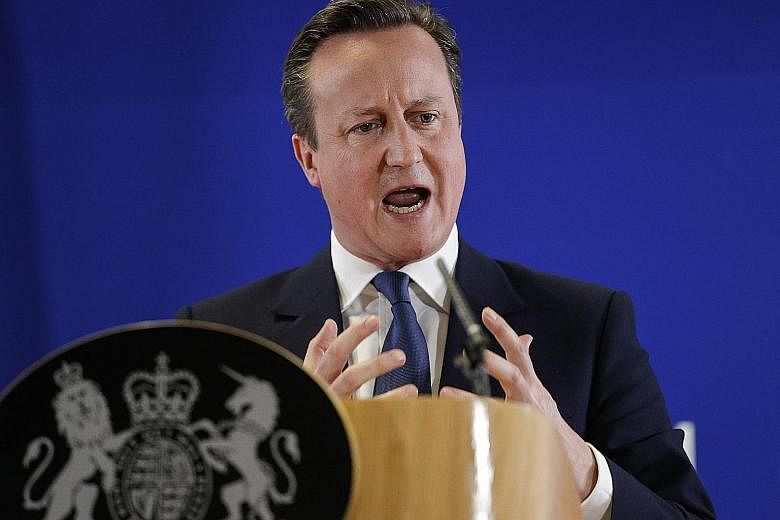IMMIGRATION
What Prime Minister David Cameron wanted: To make EU migrants to Britain wait four years before claiming in-work benefits and state-subsidised housing. He also wanted to stop EU migrants from claiming child benefit and sending it back to their families overseas.
What he got: An "emergency brake" for seven years on certain benefit payments to newly arriving EU migrant workers. A system to be implemented will tie the amount of benefits EU migrants in Britain can claim for their children still living in their home country to local conditions there.
SOVEREIGNTY
What he wanted: To opt out of the commitment to "ever closer union", a central pillar of the European project, in a "legally binding and irreversible" way. He sought an enhanced role for national parliaments.
What he got: A carve-out on the issue of ever-closer union - treaties will be changed in future to make clear Britain is not committed to this. A "red card" measure would allow a group of national parliaments - making up more than 55 per cent of the 28 parliaments - to be able to veto EU legislation.
ECONOMIC GOVERNANCE
What he wanted: To ensure the EU does not use Britain's status as a non-euro zone country against it. He asked for a series of "legally binding principles", including recognition that the EU has more than one currency and that non-euro zone countries should not face discrimination.
What he got: Protections to prevent the City of London from being discriminated against by euro zone states. While Mr Cameron claimed the EU had recognised more than one currency "for the first time", the language in the agreement is vague. European Commission chief Jean-Claude Juncker insisted the deal did not include giving London a veto over euro zone issues.
COMPETITIVENESS
What he wanted: To cut red tape for business. He urged the bloc to go further in ensuring the free flow of capital, goods and services so as to boost the economy.
What he got: Mr Juncker has made improving EU competitiveness a priority so this area presents less of a problem, with the bloc agreeing to "enhance competitiveness" and take "concrete steps" to improve.
AGENCE FRANCE-PRESSE

